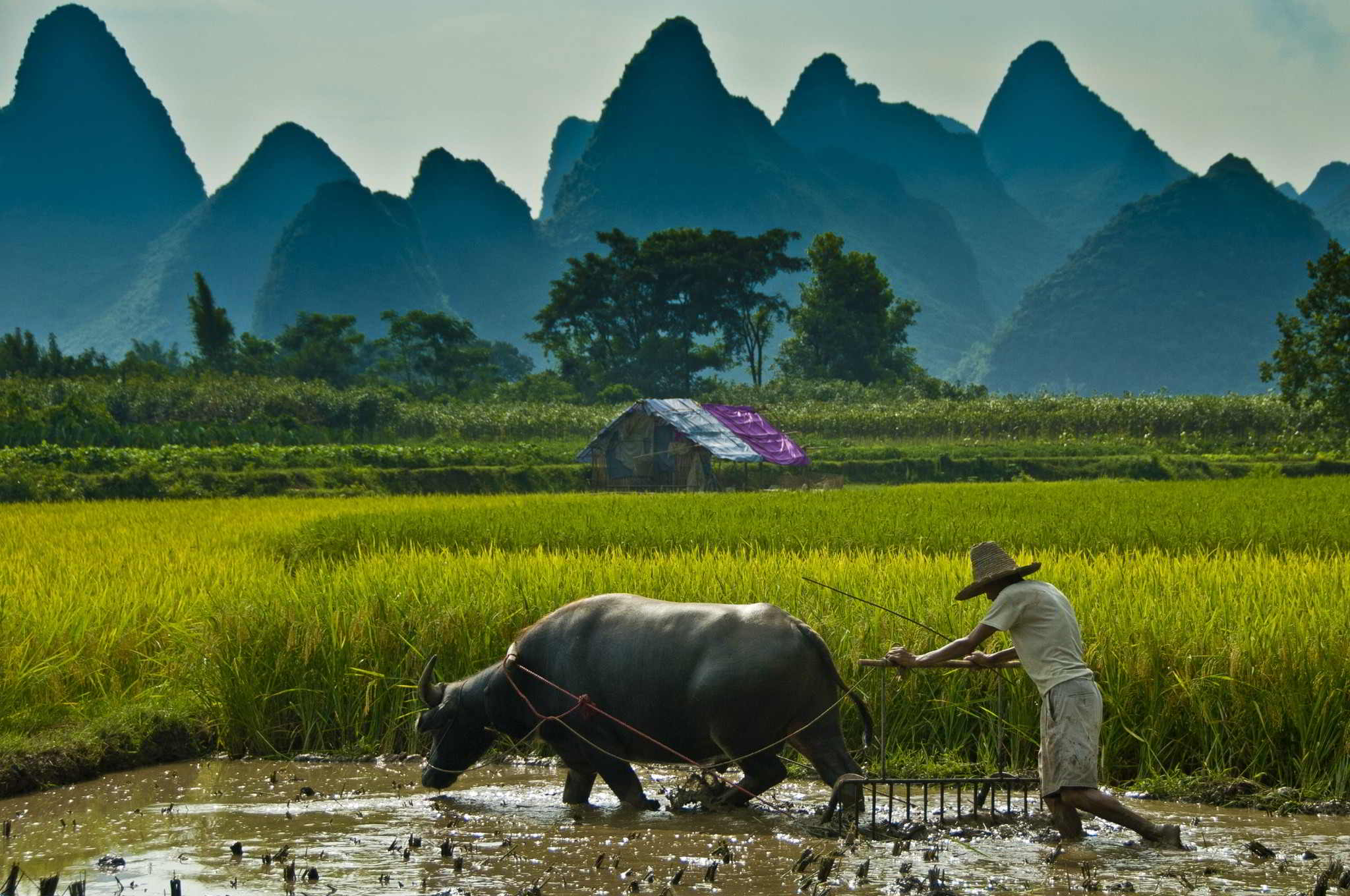
CAUSES OF AGRICULTURAL DECREASE IN INDONESIA
JAKARTA - The phenomenon of
urbanization every year continues to occur post Lebaran (Eid ul Fitr) or long
holiday in Indonesia.
The move from rural to urban is
considered to be one of the causes of the decline of agricultural productivity
in Indonesia.
Head Research Center for Indonesia
Policy Studies (CIPS) Hizkia Respatiadi said the decrease in the number of
farmers who choose to wander looking for different jobs affect the high
production of food commodities.
Even this condition makes food
self-sufficiency target more unrealistic.
According to him, urbanization from
village to city is difficult to avoid. This continues to happen and the number
is expected to increase every post-Eid celebration.
One of the causes of urbanization is
the desire to find a decent living in the city because their income as farmers
are not able to meet the needs.
"The challenges facing farmers
are increasing. In addition to low levels of welfare because the wages received
are also low, they are also faced with the diminishing size of agricultural
land as they have to deal with industrialization. The younger generation also
do not want to be farmers because they see their predecessors can not live
prosperous, "said Hezekiah in his statement on Wednesday (20/06/2018).
Based on CIPS records, in 2014 54.8
million people work in the agricultural sector. This amount is equal to 34% of
the total number of workers in Indonesia. But 34.3 million of them are poor or
vulnerable.
This condition is considered contrary
to the government's target to achieve self-sufficiency in food. Besides the
stability of food prices, the welfare of farmers is also one of the benchmarks
of the success of economic development.
"The government must address
this issue with real solutions that can be implemented. Not only by extending
agricultural land, the government should provide education for capacity
building of farmers as well as the mastery of agricultural technology. The
mastery of agricultural technology should also be followed by the
revitalization of agricultural tools, "Hizkia explained.
In addition, Hezekiah also considered
the government to fix the long food distribution chain. The length of the
distribution chain makes farmers can not enjoy the expensive price of existing
commodities at the consumer level.
 English
English Japan
Japan

modafinil starting dose modafinil drug where can i purchase provigil modafinil where to buy
modafinil and mdma where to buy modafinil reddit l-theanine and modafinil why does provigil make me pee a loy
vitamin d 2000 mg walmart med express rx generic viagra viagra tablets australia walmart pharmacy account sign in cvs pharmacy drug price list
ivermectin for pigs ivermectin side effects in dogs what do you use ivermectin for
is prednisone safe 50mg prednisone tablet does prednisone give you energy how long does it take for prednisone to get out of your system
proair vs ventolin albuterol drug albuterol inhaler side effects adults albuterol and budesonide which first
furosemide 12.5mg side effects of lasix medication what is lasix for
what is plaquenil seronegative rheumatoid arthritis and plaquenil how much magnesium in on200 mg of plaquenil
generic viagra 150 mg how to move a file best online pharmacy for viagra generic cialis tadalafil 20mg funny viagra commercials pain meds without written prescription how much does viagra cost walmart buy viagra cheap marley drug price list 100mg generic cialis lowest price levitra without a doctor's prescription pink trench coats for women price for viagra purple viagra 100 pill cialis to viagra strength conversion chart whats viagra cialis generic lowest prices generic viagra sildenafil pills women take viagra trulicity side effects passport photos at cvs 5.99 cialis every day viagra homme lowest price for viagra 100mg best supplements for men over 50 herbs for libido in women benefits of grapefruit rind online viagra generic revatio instead of viagra walmart online discount 5 mg cialis generic viagra without a doctor prescription coupons cvs printable
furosemide 40mg tab what are furosemide pills for why shouldn't furosemide be crushed
provigil and weed where to buy modafinil provigil when will provigil go generic what schedule drug is provigil
signs of high libido jon hamm endowed photo cheap viagra what is herbal viagra cialis how to take effectively
azithromycin std azithromycin without prescription buy zithromax with no prescription how does azithromycin work in the body
neurontin tablet gabapentin 100mg cost how can neurontin help porencephaly gabapentin high how much
duoneb vs albuterol buy ventolin online canada albuterol is a generic name for what is the generic name for albuterol
ivermectin mites ivermectin uk coronavirus pour on ivermectin for cows how does ivermectin kill lice
low price viagra 100mg viagra health risks kroger pharmacy free drug list natural viagra foods black makeup for black women cvs learnet jokes for women
prednisone and acetaminophen prednisone 60 mg stopping prednisone after 2 days when should you take prednisone
priligy 30mg 30mg priligy took priligy to soon what does dapoxetine do
who sells cocaine near me food that boosts female libido cost of viagra does viagra lose its potency over time generic viagra sildenafil 100mg india cialis and viagra side effects